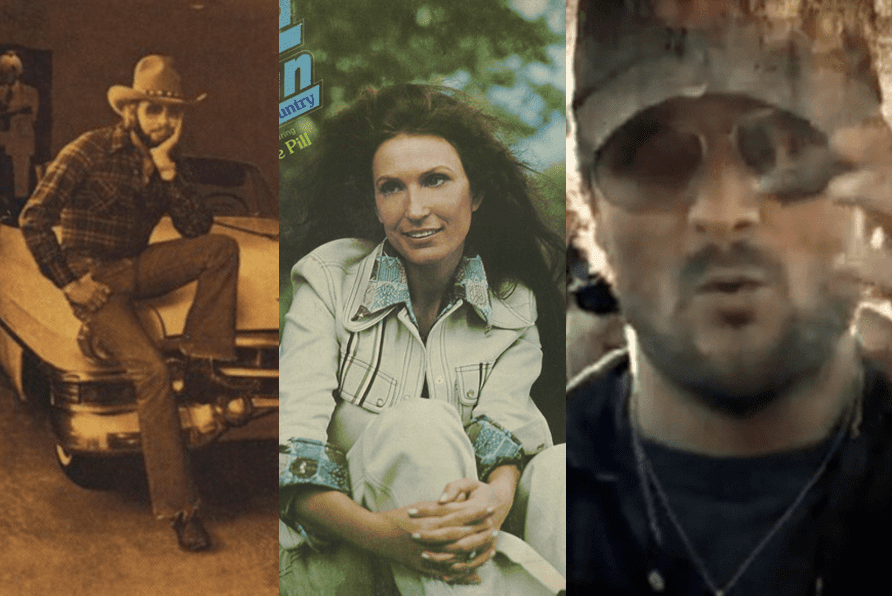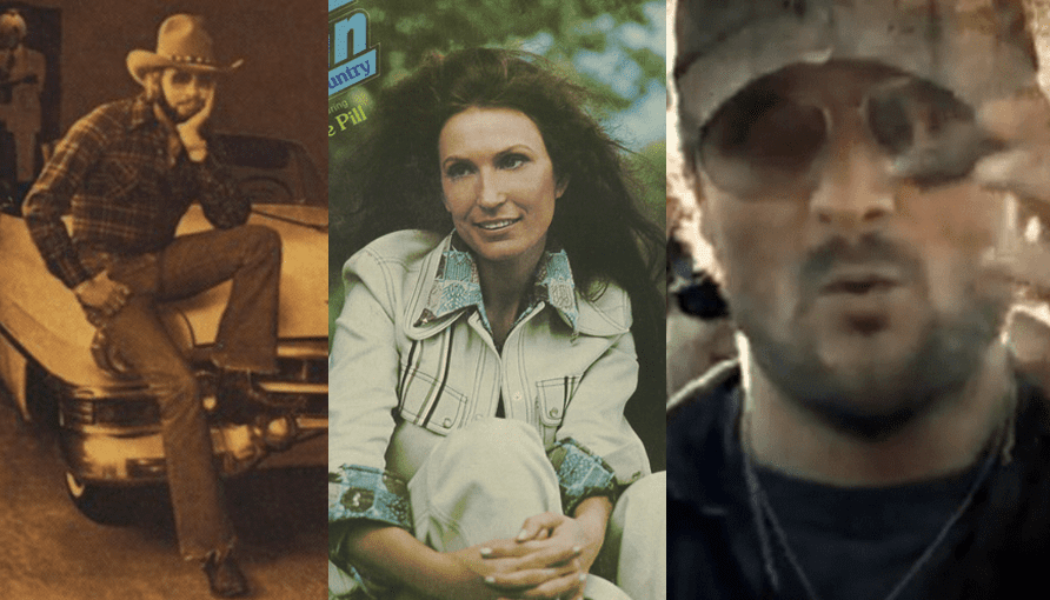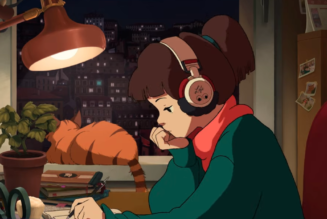
It seems like everything’s controversial these days.
No matter what you say or do, there’s pretty much always going to be somebody who gets mad at you for it (usually somebody hiding behind a keyboard).
Country music is no exception – and it’s not just a recent thing, either.
And I’m not just talking about the controversies over pop-leaning vs. traditional country, or artists saying dumb shit unrelated to their music that gets them in hot water (not mentioning any names here).
There have been quite a few songs themselves that have stirred up controversy over the years because of their content.
A lot of these controversies seem silly now, and I’m sure there will be controversial songs that come out in the future that we’ll eventually look back on and wonder why they were an issue to begin with.
But with that said, let’s look back at some of the songs that were controversial in their time in country music history.
“Red Rag Top” – Tim McGraw
This is actually the song that got me thinking about this topic. Tim McGraw‘s 2002 hit describes a young love that ends with an unexpected pregnancy, and ultimately an abortion.
“Well, the very first time her mother met me
Her green-eyed girl had been a mother-to-be for two weeks
I was out of a job and she was in school
And life was fast and the world was cruel
We were young and wild
We decided not to have a child
So we did what we did and we tried to forget
And we swore up and down there would be no regrets
In the morning light”
The song was pulled from many radio stations after complaints from listeners, with one station manager in South Carolina saying that it was “bad business to play a song that is likely to alienate 40% to 50% of the audience.” Others pointed out that the song is about real life situations that real life people face every day, which is what country music is supposed to be.
Ultimately the song was still a success, peaking at #5 on the country charts. And Tim McGraw himself has said that it’s his favorite song to sing in concert.
“The Pill” – Loretta Lynn
The late, great Loretta Lynn was always a trailblazer for women in country music, and was never afraid to invite controversy head on with her songs. In fact, Loretta counts 14 songs of hers that have been banned from the radio at some point, for one reason or another.
And none stirred up more controversy than “The Pill.”
Released in 1975, “The Pill” tells the story of a woman who’s upset at her husband for constantly getting her pregnant, but finds her own freedom once she finally gets on birth control.
“You wined me and dined me
When I was your girl
Promised if I’d be your wife
You’d show me the world
But all I’ve seen of this old world
Is a bed and a doctor bill
I’m tearin’ down your brooder house
‘Cause now I’ve got the pill”
The birth control pill was still a relatively new concept at the time, having only been introduced 15 years before Loretta Lynn’s song, and it was still a taboo subject among evangelicals and the more conservative base of country music listeners.
“The Pill” was held back by the label for 3 years after it was recorded, and once it was released around 60 radio stations across the country still refused to play it. But as was usually the case, Loretta Lynn got the last laugh when it went on to become one of her most popular songs – even if it stalled at #5 on the charts.
“Smoke a Little Smoke” – Eric Church
“It’s your funeral.”
That’s what Eric Church‘s label told him when he said that he wanted to release “Smoke a Little Smoke” as his third single from Carolina after having little success with the first two releases from the album, “Love Your Love the Most” and “Hell on the Heart.”
Church had listened to his label up to this point, putting out radio-friendly singles that would get his music on the charts and, as his label assured him, help advance his career.
Well both of the first two singles reached the top 10 of the charts – and that’s about it.
So Church wanted to try something different. He had been playing “Smoke a Little Smoke” during his live shows and had been watching the crowd’s reaction.
In his words, “They were tearing the walls down.”
But the label wasn’t keen on releasing a stoner anthem to radio (remember, this was 2010 – the first state didn’t legalize marijuana for recreational use until 2012).
Church stuck to his guns. In fact, he did more than that: He threatened to walk from the label if “Smoke a Little Smoke” wasn’t released as his next single.
“I went to the label, I said ‘This is what we’re putting out, or I’ll never make another album. I’ll never record for you again.’”
Well “Smoke a Little Smoke” became his next single – and despite the fact that the song’s radio performance was unremarkable (and there were radio stations that refused to play it altogether), sales of Chief’s music spiked and he was able to prove to the label that his musical instincts were correct.
In fact, it’s because he was right about “Smoke a Little Smoke” that Church says he was able to have the freedom to do what he wanted with the next record, Chief, which is still his best-selling album to date.
“Accidental Racist” – Brad Paisley & LL Cool J
What more can you say about this one but: Yikes.
I mean, what the hell were they thinking?
I get that the song was supposed to address racial tension and serve as a sort of common ground for a white southerner who was proud of his heritage and a black man who still has to face the ugly reality of racism, but man, this one completely missed the mark.
With lyrics like “If you don’t judge my gold chains, I’ll forget the iron chains” comparing jewelry to slave shackles, many claimed that the song “Accidental Racist” was… accidentally racist.
Now obviously everybody involved with the song had good intentions in trying to promote discussions of how cultural differences can be harmful or offensive to others, but the song was universally considered a failure and has even been pointed to as the turning point where Brad Paisley‘s career started to go downhill.
“Girl Crush” – Little Big Town
This is one of the more stupid controversies on the list, because the song was pulled from radio stations because people THOUGHT it was about something that it wasn’t.
If you take three minutes to listen to the words of the song, you’d know that Little Big Town‘s “Girl Crush” is about a girl who’s jealous of another girl for being with the man that she wants. It doesn’t have anything to do with…well, what the people who were upset thought it was about.
But in a society where people get upset about headlines before even reading the full article, it’s really no wonder that there were a few out there who saw the title, or heard the first lines of the song, and were immediately outraged.
While some radio stations got a few complaints about the song, the controversy may have been driven more by the media amplifying those complaints (imagine that) than people who were actually upset about the song.
The song ultimately reached the top of the charts, was nominated for (or won) pretty much every award imaginable for what felt like 5 years straight, and was played on the radio so much that people were sick of hearing it by the time it went away.
“Indian Outlaw” – Tim McGraw
“Red Rag Top” wasn’t the first Tim McGraw song to stir up some major controversy.
His 1994 single “Indian Outlaw” drew outrage from some Native American groups for featuring offensive themes and stereotypes.
Tim McGraw even met with protestors who wanted him to stop playing the song at live shows, though he ultimately refused to remove it from his setlists.
With the more recent controversies surrounding the names and mascots of sports teams like the Atlanta Braves, the Cleveland Indians and the (former) Washington Redskins, you’ve gotta wonder if a song like “Indian Outlaw” would even be released today.
But McGraw still performs the song in his live shows, so it seems that fans still enjoy it despite the controversy.
“It Wasn’t God Who Made Honky Tonk Angels” – Kitty Wells
Kitty Wells made history in 1952 when she became the first solo female artist to reach #1 on the Billboard country chart with “It Wasn’t God Who Made Honky Tonk Angels.”
But it also caused some controversy along the way.
The song was a response to Hank Thompson’s “The Wild Side of Life,” which blamed God for making his wife a “honky tonk angel” who was unfaithful to her husband.
And in her answer, Kitty Wells fired back and put the blame for cheating wives on their cheating husbands.
In 1952, with the women’s liberation movement still 10 years away, a song blaming men for their wives being unfaithful was pretty radical – especially in the male-dominated, conservative industry of country music.
Wells was prohibited from performing “It Wasn’t God Who Made Honky Tonk Angels” on the Grand Ole Opry, and the NBC radio network banned the song from its airwaves – but in the process, Kitty Wells became the first solo female country star and paved the way for generations of women artists to follow.
“Follow Your Arrow” – Kacey Musgraves
Never one to shy away from speaking out on important social issues, Kacey Musgraves made it crystal clear where she stands with her 2013 hit “Follow Your Arrow.”
There was of course this line that led to the song being considered trailblazing (and in some circles, controversial) for its embrace of homosexuality in a genre that often shies away from the subject:
“So, make lots of noise
Kiss lots of boys
Or kiss lots of girls
If that’s something you’re into”
But there was another line that also generated some controversy, and was ultimately censored from Kacey’s performance at the CMA Awards:
“When the straight and narrow
Gets a little too straight
Roll up a joint, or don’t
Just follow your arrow
Wherever it points”
Apparently “roll up a joint” was somehow too controversial for the CMA Awards…in 2013.
The song also never made it far on the radio charts due to its “controversial” subject matter, but it remains one of Kacey Musgraves’ most popular songs to date.
“Sunday Mornin’ Comin’ Down” – Johnny Cash
If you’ve never heard the story of how Kris Kristofferson managed to get Johnny Cash to record his songs, it’s a pretty good one.
It turns out, Kristofferson was working as a janitor at Columbia Records, which was Johnny Cash’s label.
Kristofferson befriended June Cash, and would slip her his demos to take home and play for her husband.
When that didn’t work, Kristofferson decided to take a more drastic approach: A pilot for the Army Reserve, Kristofferson took a detour during one of his training flights and landed his helicopter on the lawn at Cash’s home outside of Nashville with his demo tapes in hand – including one for “Sunday Mornin’ Comin’ Down.”
Well that was enough to get Cash’s attention, and he would ultimately go on to record the Sunday morning hangover anthem.
But Johnny Cash drew some controversy with his version of the tune when the TV network told him that he needed to change the lyrics “I’m wishing Lord that I was stoned” when he performed the song on his show.
He didn’t change it, but instead he put a little extra emphasis on the “stoned” to show the network what he thought of their request.
“The Thunder Rolls” – Garth Brooks
Ok, so it wasn’t this song that caused so much controversy for Garth Brooks as much as it was the accompanying music video.
If you’ve heard the live version of “The Thunder Rolls,” you know that there’s a fourth verse to the song that didn’t make it on to the radio edit:
“She runs back down the hallway, and through the bedroom door
She reaches for the pistol, kept in the dresser drawer
Tells the lady in mirror, he won’t do this again
‘Cause tonight will be the last time, she’ll wonder where he’s been”
Well in an attempt to allude to this fourth verse, the music video for the song centered around an abusive husband with its themes of domestic violence.
The subject matter was deemed too dark and was ultimately pulled from both CMT and TNN (The Nashville Network) not long after it was released, with a CMT rep saying that they were “in business to entertain, not to promote or condone gratuitous violence or social issues.”
Ironically, the video would later go on to win the CMA Award for Video of the Year.
“You’ve Never Been This Far Before” – Conway Twitty
If there was an award for the most horny lyrics of the 80’s, it would have to go to Conway Twitty.
From “Lay You Down” to “Tight Fittin’ Jeans,” Twitty wasn’t afraid to include sexual themes and lyrics in his music.
But there was one song that some thought went a little too far: “You’ve Never Been This Far Before.”
“I can feel your body tremble
As you wonder what this moment holds in store
And as I put my arms around you
I can tell you’ve never been this far before
I don’t know what I’m saying
As my trembling fingers touch forbidden places
I only know that I’ve waited
For so long for the chance that we are taking”
Doesn’t really leave much to the imagination…
Well some radio stations didn’t like the raunchy lyrics, and ultimately refused to play the song. But it still went on to become one of Conway’s biggest hits.
“Goodbye Earl” – Dixie Chicks
This now-classic song from The Chicks garnered quite a bit of controversy for diving into the issue of domestic violence in a seemingly-lighthearted way.
Radio stations across the country refused to air the song, and some chose to provide phone numbers for domestic violence shelters or hotlines whenever they did play it.
The song was ultimately supported by the National Coalition Against Domestic Violence for starting a public discussion and shedding light on an often-taboo subject.
“Dinosaur” – Hank Williams Jr.
This is one that’s become more controversial as the years have gone by. Not that Hank gives a shit.
The song from Hank Williams Jr.’s 1980 album Habits Old and New bemoans the loss of classic “country, rhythm and blues” in a time when disco was taking over, replacing dive bars with dance clubs. But one verse in particular drew the ire of critics, who claimed the song was homophobic:
“You’re singin’ a song about makin’ love to your drummer
Well gay guitar-pickers don’t turn me on
And we don’t all get into Donna Summer
Do you happen to know any old Hank Williams songs?”
A review of a Bocephus show from the Dallas Observer in 2014 blasted the song, saying:
“If that wasn’t enough, there was the homophobia too. The show didn’t really start to go down that road until it was about two-thirds over, when Williams played “Dinosaur.”
But while it was never a single for Hank Jr., “Dinosaur” remains one of his top-played songs on Spotify, and one that’s still covered by quite a few modern (actual) country artists.
“Cowboys Are Frequently Secretly (Fond of Each Other)” – Willie Nelson
Written and recorded by Latin country musician Ned Sublette, the song was recorded by Willie Nelson in 2006, right around the time the movie Brokeback Mountain came out.
Nelson actually recorded a demo of the song in ’80s, but didn’t release it until he had a good reason:
“I thought it was the funniest goddamn song I’d ever heard. I had it on the bus for 20 years, and people would come in and I’d play it. When ‘Brokeback Mountain’ come out, it just seemed like a good time to kick it out of the closet.”
Pun very much intended.
Willie didn’t expect the song to get much press due to the LGBTQ nature of the song, however it actually charted fairly well as a single for him, his highest since 1984. He would later release it as part of his 2009 album, Lost Highway.
“Am I The Only One – Aaron Lewis
Dubbed a Conservative political anthem, Aaron Lewis’ “Am I The Only One” voices frustrations over the current state of the country including shots at President Joe Biden and Bruce Springsteen.
“Am I the only one who can’t take no moreScreamin’, “If you don’t like it, there’s the fuckin’ door”This ain’t the freedom we’ve been fightin’ forIt was somethin’ more, yeah, it was somethin’ moreAm I the only one, willin’ to fightFor my love of the red and whiteAnd the blue, burnin’ on the groundAnother statue comin’ down in a town near youWatchin’ the threads of Old Glory come undone…”
And while it was praised by Conservatives and criticized by those on the Left (shocker), one critic said the song could “encourage January 6-like violence,” with another criticizing the label, Big Machine, for even allowing him to release it.
Nevertheless, it debuted at #1 on the Billboard Hot Country Chart, the highest charting single of his solo career.
Well there you have it, a look back at some of the songs that have created the biggest controversies in country music.
So what will be the next big controversial song? And will we look back on it in the future like we do some of these now, wondering why they were ever controversial in the first place?
I think that’s a pretty safe bet.
Because there are always going to be people out there looking for anything and everything to get upset over.









